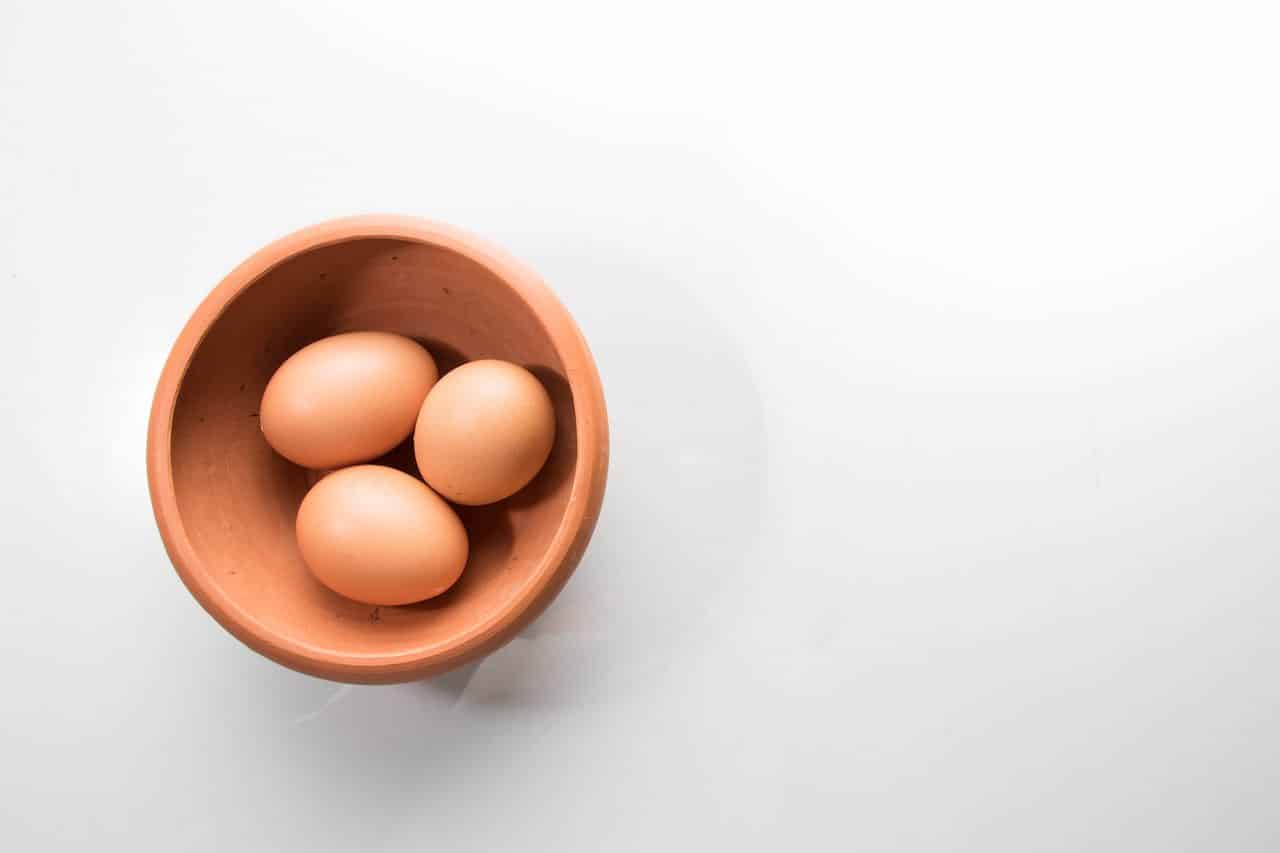Table of Contents
Albumin is a protein circulating in blood plasma and is necessary for cell growth and tissue repair. However, albumin is also an ingredient used in specific food preparations, and if you’re vegan, it’s best to know whether it’s safe for consumption.
Is Albumin Vegan?
Albumin is typically obtained from egg whites, and since eggs are animal products, albumin isn’t vegan. Although egg whites are almost 100% albumin, and it can be hard to find this protein in most other sources, obtaining enough of it on a vegan diet is still possible.
Albumin is essential for healthy liver and kidney function; hence, it’s necessary to include this protein in your diet. However, popular to common belief, albumin isn’t found only in eggs but can be obtained from plant-based sources.

Plant-Based Sources of Albumin
As mentioned, albumin is a protein, and it’s manufactured by your liver and circulated through the body. Providing your body with enough albumin requires you to consume plenty of protein through various sources. Here are a few of the most common sources of plant-based protein.
1. Tofu And Tempeh
Tofu and tempeh are made from soy and are considered one of the most protein-rich plant-based foods. Aside from adequate protein, these foods also give the body calcium and iron in significant amounts to carry out other processes.
2. Chickpeas
Like tofu, tempeh, and other soy products, chickpeas are considered complete proteins as they contain all nine essential amino acids in significant quantities. Chickpeas are also an excellent source of fiber, allowing your body to digest and absorb protein at a higher rate.
3. Oats
The ideal breakfast for most people looking for a power-packed start to their morning, 100 gms of oats contain roughly 11 gms of protein. Oats are also fiber-rich and can help the body absorb protein more efficiently.
And if you get rolled oats instead of the regular variety, that’s nearly 14 grams of protein per cup.
4. Spirulina
Spirulina is nearly 65% protein and contains a wealth of other nutrients essential for the body. However, most people eat spirulina in tiny quantities, often insufficient to get adequate protein. But thanks to the variety of other nutrients, spirulina is still considered a superfood.
5. Legumes
Legumes are packed with protein and iron, which are the best foods for vegans to consume, considering how easy it is to cook legumes. The only drawback here is that most legumes contain small quantities of all nine essential amino acids.
So when consuming legumes, it’s best to pair them with grains to ensure a complete nutrient profile.
These are five popular sources of vegan protein. However, this is a partial list, and there are plenty of other vegan protein sources to choose from.
By ensuring you consume protein in adequate amounts, you can rest assured that your body will have the raw material it needs to produce albumin.
So while conventional sources of albumin, like eggs, milk, and meat, aren’t vegan, it’s possible to produce albumin in the body by consuming plenty of protein.
Frequently Asked Questions
What is the main function of albumin?
Albumin is a type of protein that helps maintain fluid balance in the body, transport hormones and other substances throughout the blood, regulate pH levels, and provide energy. Albumin also acts as an antioxidant to help protect tissues from damage caused by oxidative stress.
Additionally, albumin contributes to wound healing and tissue regeneration by providing essential amino acids for tissue growth and repair. Albumin plays an important role in maintaining healthy blood volume, which is necessary for normal organ functioning.
Finally, albumin helps to reduce inflammation throughout the body.
In summary, albumin has many important functions in the body, including regulating fluid balance and pH levels, transporting hormones and other substances throughout the blood, providing energy, acting as an antioxidant, and contributing to wound healing.
Do vegans have lower albumin?
A new study shows that, when compared to non-vegans, vegans actually have higher amounts of albumin in their bloodstream. This is despite the fact that vegans consume 20% less protein each day than their meat-eating counterparts. The research suggests that an anti-inflammatory diet may be more beneficial for optimal protein production in the liver and thus result in higher levels of albumin.
This could explain why vegans tend to have lower levels of inflammation overall, even with a lower intake of dietary protein. It also indicates that the nutrients found naturally in whole plant foods may play an important role in maintaining healthy protein production. These findings are exciting as they suggest that following a vegan lifestyle can not only provide health benefits but potentially help support optimal blood
What is the best source of albumin?
The best vegan source of albumin is soy-based products, such as tofu and tempeh. Soybeans are a great vegan source of protein and provide more than 8 grams of albumin per 3 ounces serving. Additionally, other vegan sources of albumin include quinoa, nuts, and seeds; legumes like lentils, beans, and peas; grains such as oats or barley; and vegan protein powders made from plant-based sources like peas or hemp. Plant-derived proteins can also be found in foods like spirulina, algae powder, chia seeds, and nutritional yeast too. All these vegan sources of albumin provide essential amino acids necessary for human nutrition and health.
How can you get albumin naturally on a plant-based diet?
Albumin is a type of protein found in animal-derived foods such as eggs, milk, and meat. However, plant-based diets do not include these foods. Fortunately, plant-based sources of albumin are available. Soy products such as tofu, tempeh, and edamame are all great sources of plant-based albumin. Other plant sources include quinoa, legumes (beans and lentils), nuts and seeds (such as pumpkin seeds and chia).
For vegans and vegetarians who follow plant-centered diets, plant proteins can provide adequate amounts of essential nutrients, including albumin. Eating a variety of plant proteins throughout the day is the best way to ensure that you get enough albumin in your diet. Additionally, plant-based protein powders and plant milks can also provide an easy way to increase your albumin intake. By including a variety of plant-based sources of albumin in your diet, you can get all the benefits that come with this essential nutrient.
Additionally, plant-based diets are overall healthier for the body than animal-derived foods. Plant-based diets have been linked to lower levels of inflammation and improved heart health. They may also help prevent certain types of cancer and other chronic diseases. Eating plant-based sources of albumin gives you the added benefit of getting all these health benefits without compromising on protein intake. So, if you’re looking for a healthy source of albumin while adhering to plant-based dietary restrictions, look no further than plant sources.
Regardless of your dietary preferences, plant-based albumin sources are a great way to get the nutrients you need without compromising on health or environmental sustainability. And with so many plant-based sources of albumin available, there’s something for everyone. So go ahead and give plant-based albumin a try. You won’t regret it.
Which fruit is rich in albumin?
Albumin is a type of protein found in many fruits, such as apples, bananas, mangoes, oranges, and grapes. In particular, apricots are especially high in albumins, containing up to 22 milligrams per 100 grams. Avocados also contain significant amounts of albumin; they contain up to 18 milligrams per 100 grams.
Other fruits that are rich in albumin include peaches and raspberries. While these foods may not be considered the most nutrient-dense sources of proteins due to their relatively low protein content per serving size when compared with animal sources of protein like eggs or meat, they nonetheless provide valuable micronutrients and macronutrients for people who follow vegetarian diets. Moreover, they are a great source of dietary fiber, which can help keep your digestive system healthy. Therefore, including these fruits in your diet is an excellent way to ensure you’re getting enough protein without having to rely solely on animal sources.
In summary, apricots, avocados, peaches, and raspberries are some of the best sources of albumin among fruits. Including them in your meals can help you meet your daily protein needs without sacrificing taste or quality nutrition.

